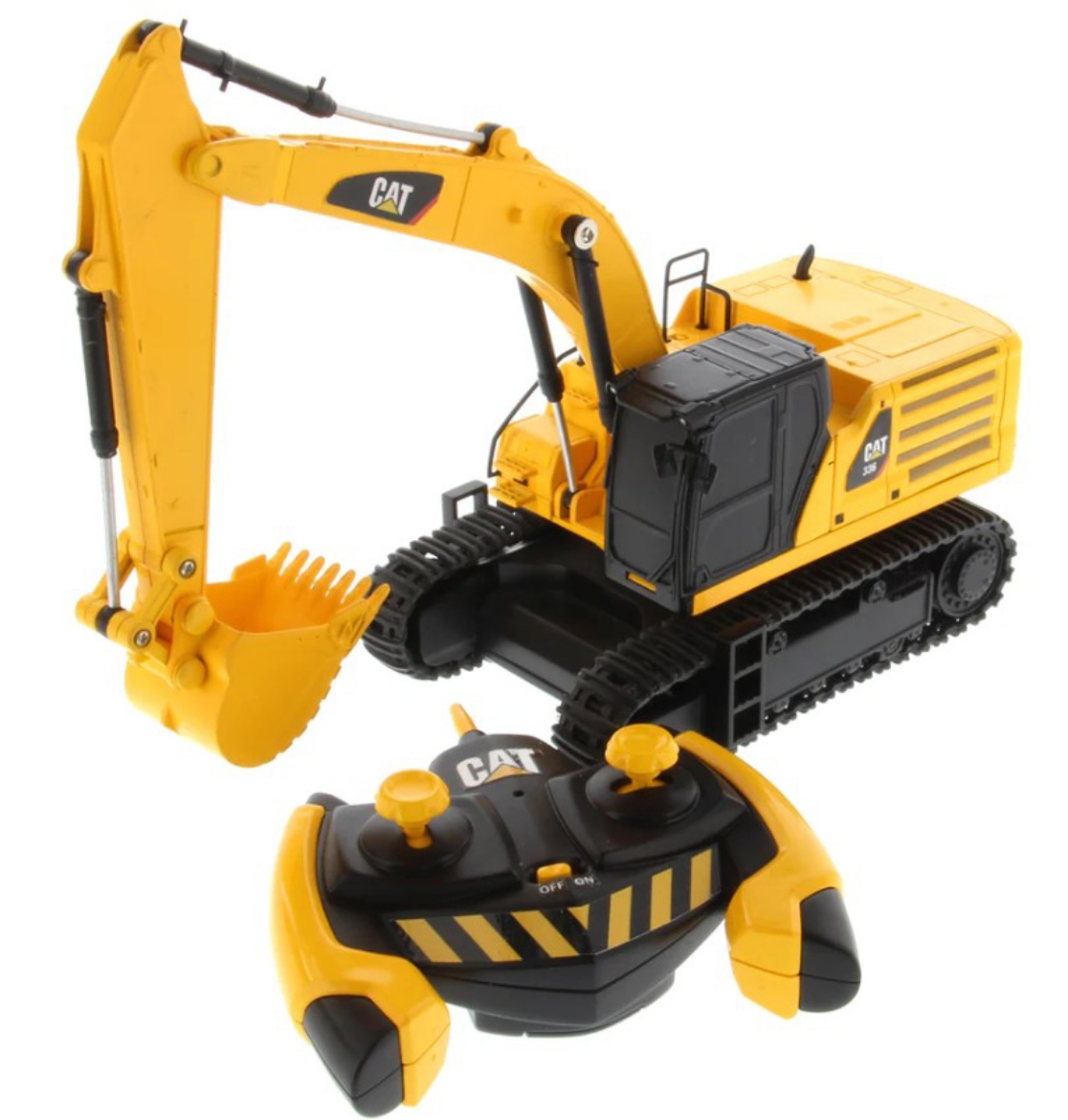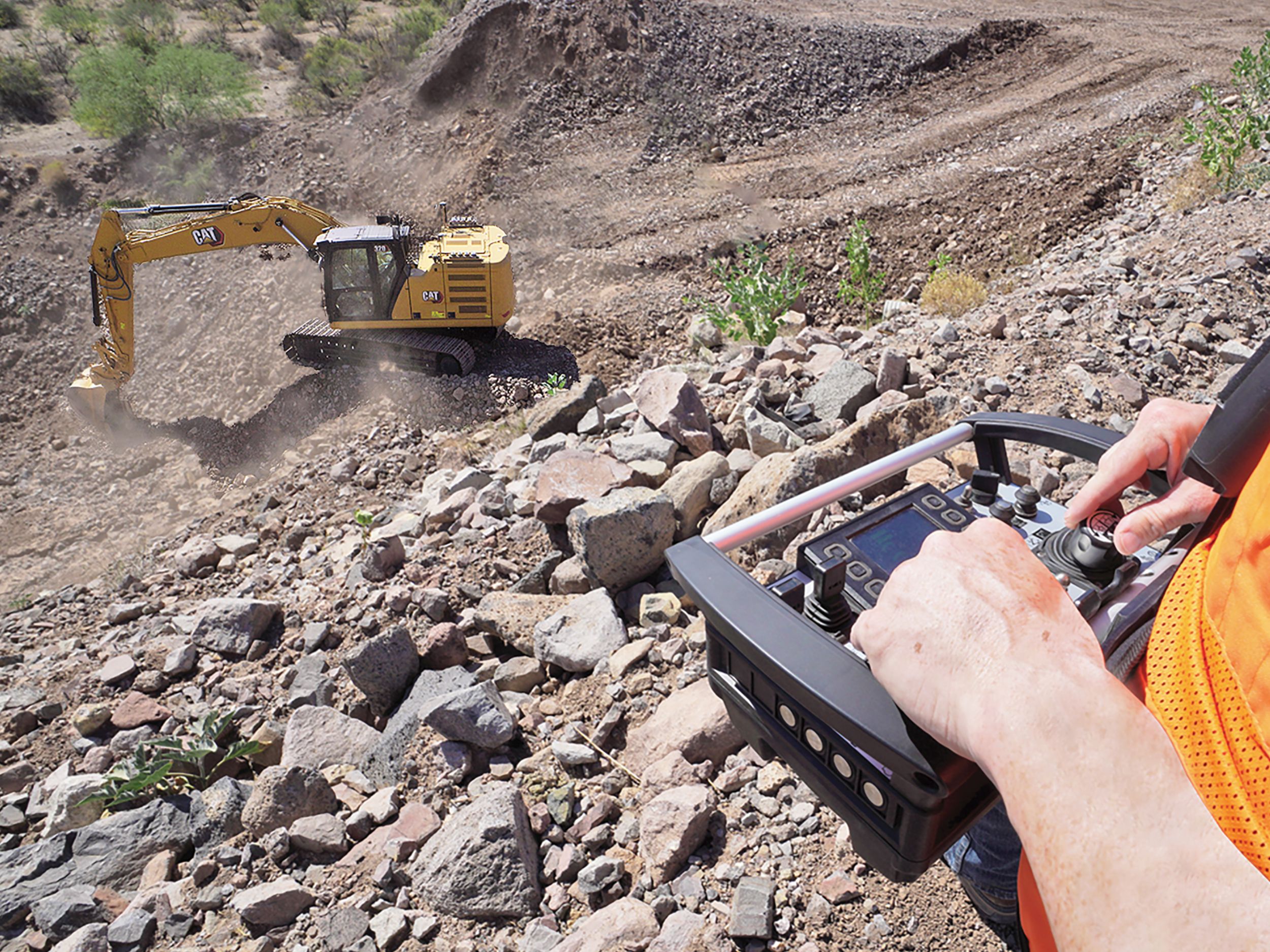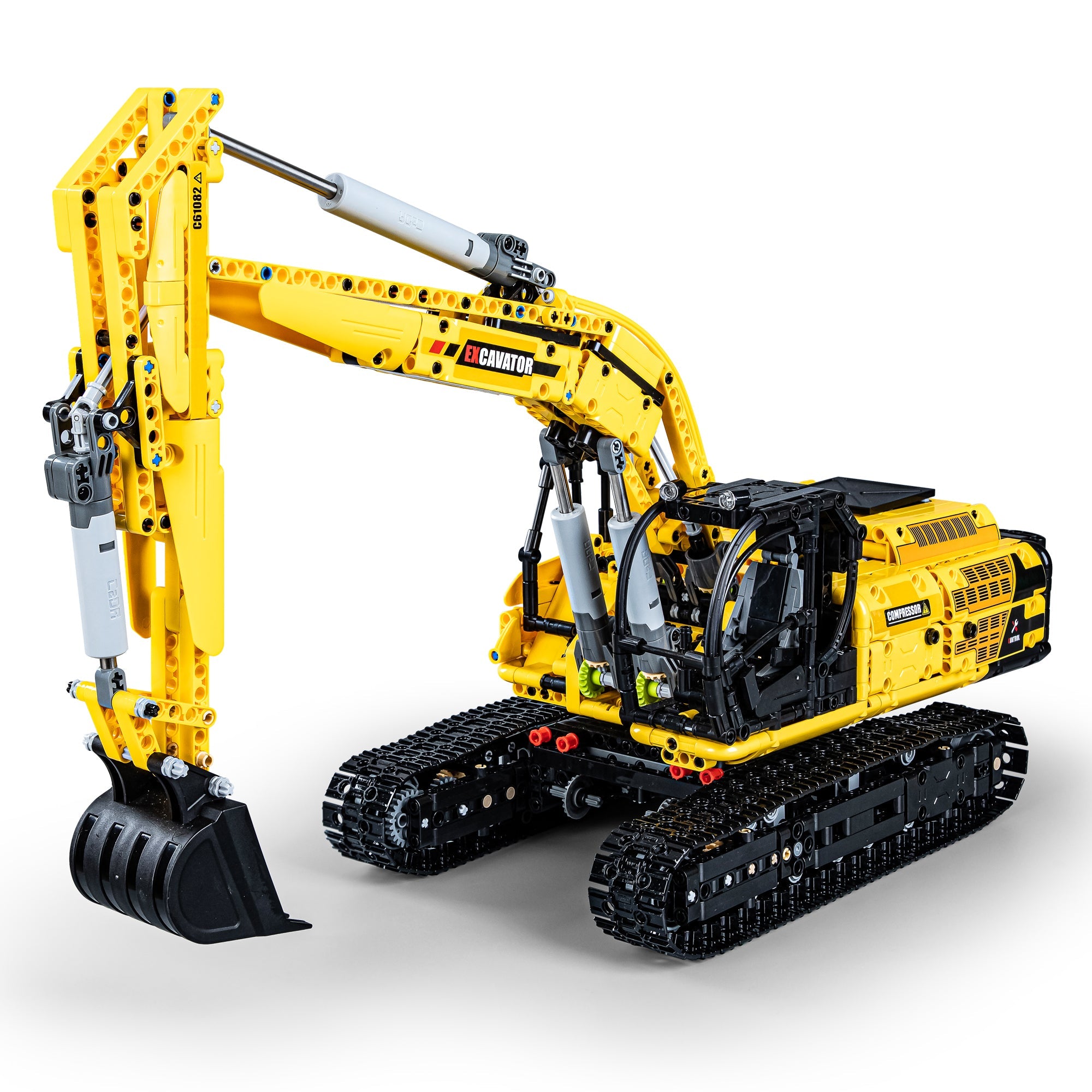Comprehending Exactly How Excavator Functions and Its Effect On Effectiveness
Excavators play an important role in building and mining operations, depending on an intricate interaction of hydraulic and mechanical systems. Their ability to perform a selection of jobs depends upon both their design and the innovation incorporated within. Comprehending these components can substantially impact functional efficiency and efficiency. As developments proceed to reshape the market, one must think about just how these changes will influence future techniques and efficiency.
The Basics of Excavator Mechanics

The Function of Hydraulic Systems in Excavators
At the heart of excavator operation lies the hydraulic system, which plays an essential role in powering the device's functions and movements. This system utilizes pressurized hydraulic liquid to move power, allowing numerous activities such as lifting, digging, and moving. By harnessing the principles of hydraulics, excavators can perform tasks with remarkable precision and force, boosting total functional efficiency.The hydraulic system includes crucial elements, including pumps, shutoffs, and cylinders, which collaborate to regulate the circulation and direction of the liquid. When the operator involves the controls, the hydraulic liquid is directed to certain cyndrical tubes, translating the driver's commands right into physical motion. This mechanism enables responsive and smooth actions, which are important in building and excavation environments. double e volvo rc excavator. The effectiveness of the hydraulic system straight affects the productivity and versatility of the excavator, making it an essential element in modern excavation procedures
Secret Parts of an Excavator
Understanding the key parts of an excavator is crucial for realizing just how this powerful maker operates. An excavator includes numerous considerable aspects, consisting of the undercarriage, house, pail, boom, and arm. The undercarriage provides security and wheelchair, typically featuring tracks or wheels to navigate different terrains. Your house has the engine and hydraulic systems, enabling the driver to manage activity and power the maker. The boom extends from your home, making it possible for vertical reach, while the arm attaches to the container, assisting in excavating and lifting operations.Additionally, the taxicab houses the operator, equipped with controls for exact maneuvering. Each of these elements plays an important role in the excavator's general capability, contributing to its performance and efficiency on building and construction sites. Recognizing these components helps in preserving and enhancing excavator performance, guaranteeing jobs are finished securely and properly.
Attachment Flexibility and Its Benefits
Add-on versatility is a necessary aspect of excavators, allowing operators to change between different tools tailored for specific tasks. This adaptability not only improves job efficiency however likewise adds to cost-effectiveness by reducing the need for multiple equipments. Understanding the different kinds of accessories offered can considerably influence the total efficiency and functionality of an excavator on task websites.
Kinds of Accessories
While excavators are mostly identified for their excavating capacities, their real versatility lies in the broad selection of add-ons readily available. These attachments boost the excavator's performance, enabling it to carry out various tasks beyond excavation. Usual attachments consist of pails (for excavating and scooping), hydraulic thumbs (for realizing products), and augers (for drilling holes) Grapples are used for relocating and managing particles, while rippers can break up hard surface areas. Various other specialized attachments, such as plates and plows, allow excavators to adapt to details task requirements. This diversity not just boosts the device's utility across various industries, consisting of demolition, landscape design, and construction, yet also permits operators to customize their devices to meet certain project needs efficiently.
Boosted Work Efficiency
Maximizing work performance is a primary benefit of making use of various excavator add-ons. Different accessories allow an excavator to do multiple tasks without requiring to switch over equipment, saving useful time and labor. Utilizing a hydraulic hammer can damage concrete while a pail attachment can dig deep into soil, enabling a seamless workflow. This versatility decreases downtime connected with tools adjustments and enhances productivity on-site. Furthermore, specialized accessories boost precision in jobs such as grading or landscape design, causing better outcomes. The capability to adjust to various job needs not just enhances operations yet also decreases the requirement for added equipment, guaranteeing that projects are completed promptly and properly. Overall, add-on flexibility considerably adds to raised work performance in excavation work.
Cost-Effectiveness and Adaptability
Cost-effectiveness is a considerable advantage of utilizing functional excavator accessories. These accessories allow a solitary excavator to do several jobs, reducing the need for extra equipment and labor - double e volvo Visit Your URL rc excavator. By switching over in between pails, hammers, and grapples, drivers can take on different projects, from excavating to demolition, therefore optimizing tools usage. This flexibility not just lowers operational expenses however additionally decreases downtime connected with altering equipment. Additionally, the capacity to personalize excavators with specialized accessories enhances efficiency, as they can effectively handle varied jobs according to project needs. In conclusion, the combination of cost-effectiveness and convenience in excavator accessories contributes to boosted operational performance and resource appropriation in building and excavation projects

Advanced Modern Technology in Modern Excavators
Modern excavators are progressively geared up with advanced innovation that transforms excavation processes. Automation improves operations, while improved fuel efficiency decreases operational costs. Additionally, wise control systems improve accuracy and security, noting a significant advancement in excavation devices.
Automation in Excavation Processes
As excavation technology advances, automation has arised as a critical element in enhancing performance and precision on work sites. Modern excavators are outfitted with sophisticated automated systems that facilitate tasks such as grading, excavating, and trenching with very little driver intervention. These systems make use of sensors, GPS, and equipment knowing formulas to ensure exact positioning and deepness control, significantly lowering the margin for error. In addition, automation allows operators to concentrate on tactical decision-making instead of hands-on controls, resulting in improved performance on the whole. Such advancements not only streamline operations but additionally boost safety by lessening human mistake in complex operations. As a result, the assimilation of automation in excavation procedures represents a substantial advancement in construction innovation, driving the market in the direction of better efficiency and effectiveness.
Improved Gas Effectiveness
Innovations in modern technology have actually additionally brought about substantial renovations in gas effectiveness for modern excavators. Modern makers are furnished with sophisticated engines that enhance power outcome while decreasing fuel consumption. These engines utilize innovative combustion modern technologies, such as turbocharging and straight gas shot, to boost performance and effectiveness. Additionally, light-weight materials in building and construction minimize overall weight, enabling for less power expense during procedure. The introduction of variable rate controls allows drivers to readjust engine efficiency according to certain jobs, further minimizing gas usage. Therefore, these enhancements not only reduced operational prices yet likewise contribute to ecological sustainability by reducing exhausts. Generally, improved gas performance in excavators is a necessary advancement that reinforces performance and economic viability in the construction market.
Smart Control Systems
While drivers navigate progressively complex work sites, clever control systems in excavators have arised as vital tools for improving efficiency and precision. These innovative technologies make use of algorithms and sensing units to monitor numerous parameters such as her latest blog lots weight, terrain problems, and operational efficiency. By automatically changing hydraulic features, smart systems enhance machine performance, leading to enhanced performance and reduced wear on parts. In addition, operators benefit from instinctive interfaces that supply real-time responses and diagnostics, enabling educated decision-making. This integration of innovation not just streamlines operations however additionally minimizes human error, adding to more secure work atmospheres. As the building and construction market continues to advance, wise control systems will play an essential duty in shaping the future of excavator efficiency and efficiency.
Enhancing Functional Effectiveness With Excavators
Excavators play an important role in improving operational effectiveness across different building and construction and excavation tasks. Their convenience permits numerous jobs, consisting of excavating, lifting, and material handling, which improves process and minimizes the requirement for extra devices. With powerful hydraulic systems, excavators can execute durable tasks with precision, considerably decreasing the time required to full tasks. The assimilation of advanced technology, such as general practitioner and automated controls, additionally enhances their procedure, making it possible for drivers to achieve better precision and decrease material waste. In addition, contemporary excavators are developed to take in less gas and minimize exhausts, contributing to both cost financial savings and environmental sustainability. By utilizing excavators properly, construction groups can enhance performance, satisfy task due dates, and improve total site monitoring. This multifunctionality and effectiveness make excavators vital tools in the modern-day construction landscape.
The Future of Excavators in Building And Construction and Mining Industries
As the building and mining sectors develop, the future of excavators is positioned for considerable makeover driven by technological innovation and transforming operational demands. Advances in automation and man-made intelligence are reshaping excavator capacities, allowing for boosted precision and effectiveness in procedures. Autonomous excavators are emerging, lowering the need for human intervention and decreasing the risk of accidents.Moreover, the integration of telematics and IoT innovation makes it possible for real-time monitoring of device efficiency and anticipating maintenance, enhancing uptime. Eco-friendly designs, including electric and hybrid models, are acquiring grip, straightening with sustainability goals within the industry.Additionally, the usage of innovative important source materials and lighter styles enhances fuel effectiveness while keeping efficiency standards. As these trends development, excavators will play an essential duty in meeting the increasing demands for efficiency and security in building and construction and mining, inevitably changing functional landscapes.
Frequently Asked Questions
Just How Do Weather Impact Excavator Performance?

Climate condition significantly influence excavator performance, as rainfall and mud can impede traction and security, while severe temperatures may influence hydraulic systems. Operators has to adjust to these variables to assure suitable performance and safety throughout operations.
What Safety Actions Should Operators Adhere To While Utilizing Excavators?
Safety procedures for excavator drivers include putting on proper personal safety tools, conducting pre-operation examinations, guaranteeing correct communication with ground personnel, keeping a safe range from overhanging risks, and adhering to recognized functional protocols to avoid accidents.
Just How Usually Should Excavators Be Preserved for Optimum Performance?
Excavators must be kept frequently to assure peak performance, normally every 250 operating hours or as defined by the manufacturer. Routine checks improve integrity, prevent unexpected malfunctions, and expand the life-span of the devices.
What Is the Ordinary Life-span of an Excavator?
The average lifespan of an excavator usually varies from 10,000 to 15,000 hours of procedure. Variables affecting long life include upkeep techniques, operating conditions, and the quality of the device itself, affecting general efficiency and effectiveness.

Can Excavators Run on Uneven Terrain Successfully?
Excavators can run effectively on uneven terrain due to their verbalized layouts and adjustable tracks. These attributes permit them to maintain security and grip, enabling efficient operation in challenging atmospheres commonly encountered in building and landscaping projects. Each of these elements plays a crucial function in the excavator's general performance, adding to its effectiveness and efficiency on building websites. Optimizing work effectiveness is a main advantage of using various excavator attachments. While operators navigate increasingly intricate work websites, smart control systems in excavators have emerged as important devices for boosting performance and precision. Excavators play a necessary duty in boosting functional efficiency across numerous construction and excavation projects. Advances in automation and man-made knowledge are improving excavator capacities, permitting for boosted accuracy and effectiveness in operations.